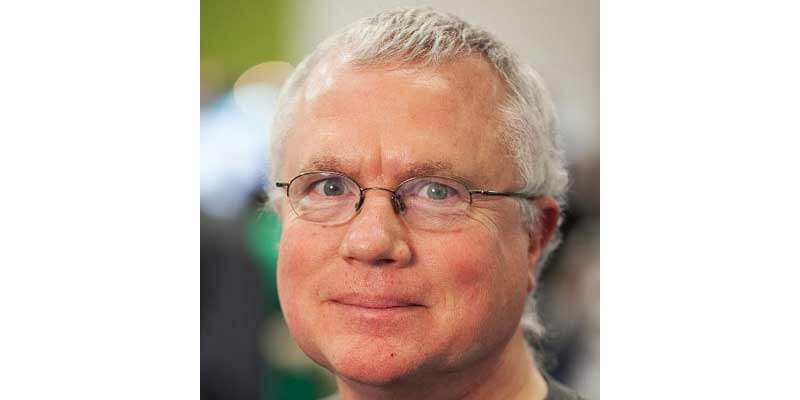Expert Insights On The Future Of SEO, Part 1
Do you have the skills it will take to thrive in the SEO environment of the future? In the first of this 3-part series, search industry veterans weigh in on how things will be different in 2015.
The upheavals in SEO over the last few years have been dramatic and, in some instances, devastating. The status quo has been altered forever. No more does the “same old, same old” work. Everything is different — and the evolution continues.
So what’s a business owner like you to do? How can you plan your SEO strategy for 2015 and beyond? What foundations should you lay (or firm up) to enjoy great results in the future — starting with your 2015 budget?
To help guide you, I asked several industry experts to discuss their thoughts on the future of SEO. Today’s question focuses on the near future: 2015.
How Do You See SEO Being Different In 2015?
Rand Fishkin
A few big themes stand out to me:
- The loss of exact match keyword research data in AdWords will almost certainly affect how SEOs choose keywords and employ targeting (making both more difficult and broader).
- The deluge of investment in content marketing will make it increasingly harder to stand out with a purely content-based strategy. I suspect SEOs will get creative and employ more paid and non-paid amplification to help their content reach wider audiences, while simultaneously seeking non-content-focused methods of earning links (events, embeddable assets, bios + interviews, and old-school tactics like resource pages and direct outreach would be among my guesses).
- Google’s ongoing struggle with identifying and discounting webspam means that many SEOs will spend frustratingly long hours watching for and disavowing potentially risky links (a practice that Google should be able to handle on their own, but have, infuriatingly, outsourced the responsibility to site owners).
Eric Enge
The only thing that will be constant is change. Here are nine trends I see happening:
- Google will use more and more signals to determine ranking, and it will get harder and harder for SEOs to fully understand what those signals are, and how they interact.
- The needs of mobile devices will start driving the UI of the SERPs. We already see this with the removal of author photos, reduction of video snippets, and the changes made with Pigeon. This is all being driven by the growth of mobile searches. At SMX Advanced, Matt Cutts told us that mobile search volume on Google would exceed desktop search volume before the end of 2014. Google is acting accordingly.
- Voice search and natural language search will continue to expand rapidly. Google is investing heavily in being able to understand semantics and context.
- Google will be forced to deal with Negative SEO. The growth of this industry is continuing to scale, and that represents a real threat to its search quality. In fact, this is probably the biggest threat to its business.
- Manual and algorithmic actions against spam or low quality sites will continue to grow. As with Negative SEO, this is a battle that Google must win.
- Bing will continue to struggle, but it will not go away.
- More and more vertical search options will emerge, and some of these will grow and prosper, but many will not.
- Facebook will continue to invest in search capabilities, but this will be more about improving the experience on Facebook — not a direct threat to Google.
- Last, but not least, Apps will get indexed, and App SEO will be a real area of focus.
Bill Slawski
One of the areas that we see a lot of benefit for clients in 2015 is with Google adding Knowledge Panels, OneBoxes, Rich Snippets, and other semantic elements into search results. We’ve been creating Entity Audits for clients to make their site content richer, as well as more likely to rank well and be represented well in these new presentations at Google and Bing, based upon a lot of new papers and patents from the search engines.
We expect more companies will be developing in-house SEO departments and be in need of training for the creation of content in-house, especially as rumors of Author Rank grow with the presence of in-depth articles and some patents/papers on making author content rank better based upon authority and expertise. We’ve been working with clients on building strategies for getting more out of Google+ both now, and as we see more changes to it.
Stephan Spencer
The rapid expansion of mobile and voice search will lead to more nontraditional SEO. The small keyboard on mobile devices will continue the shift away from the traditional typing of an exact query into a search engine web interface. Search will become more embedded within apps and shift in a significant way to natural language voice search.
Apple and Google have already made significant strides in moving to voice search and Microsoft has entered with the fray with Cortana. The Linguistic User Interface (LUI) is going to revolutionize computing overall, as much as the Graphical User Interface (GUI) revolutionized things with the advent of the Mac OS and Windows. SEO practitioners are going to need a whole new set of skills when this happens.
[pullquote]”Winning in the SERPs will require deep insights into user intent.”[/pullquote]
Search is becoming more personalized and user influenced. Search will move farther away from getting the exact details of on-page SEO right and more towards ensuring that your pages, products, and content actually meet your users’ needs.
This is all part of increasing the focus on the user and trying to determine their intent at the time of the search. Becoming an authoritative source for information which meets users’ needs more than search engines’ needs will become critically important. Winning in the SERPs will require deep insights into user intent.
The engines will continue to make improvements in their ability to crawl and index new content types such as multimedia, content behind forms, scanned documents, and of course content previously uncrawlable due to JavaScript and Ajax. Search engine optimization professionals will need to become more involved in the optimization of multimedia at the pre-production level to ensure that this now crawlable content is optimized both to satisfy user intent and the search engine algorithms.
Barry Schwartz
Sad thing is, I don’t see SEO changing much in 2015. There are still a large number of SEOs who are buying links and doing things that can get themselves in trouble.
I do see Penguin being more streamlined into the algorithm in 2015. I see Google announcing that the mobile ranking signal and HTTPS ranking signal have become more important. I also see Google saying that Author Rank has become more dominant in 2015.
It would be cool if Google didn’t update PageRank in 2014, which might help novice SEOs not ask about PageRank in 2015. I would love that.
Negative SEO will become more and more of an issue for webmasters, SEO and Google in 2015.
But you can expect more of the same: Google penalizing sites both algorithmically and manually to preserve its search quality and becoming stricter and stricter with the rules.
Dr. Pete Meyers
Here are a few trends I see, both within Google and our broader work. Most of these are “works in progress” — less about upheaval than evolution:
- The Knowledge Graph will continue to expand, and Google will get more aggressive about creating answers from content in the index. This will radically change the landscape for some queries, and we have to be very aware of how our SERPs look in the wild.
- Mobile-first design will continue to drive site design. If you want to know where Google is headed, look to mobile.
- Paid search elements will get more aggressive in verticals like hotels, travel, and insurance. Expect Google to experiment more with paid local results.
- More and more of us will shift to landing-page based metrics (“content analytics,” for lack of a better phrase) as keyword data continues to disappear.
Marcus Tober
I believe that SEO is becoming a strategic element in companies.
In the past, SEO was tactical and didn’t have a strong reputation. But search has evolved a lot and become so dominant in our lives that the people who understand how to become relevant and successful in search will be more powerful in companies. The trends and developments that I see are:
- Brands will move towards lean and fast websites with a great internal structure that’s made for users and is search engine friendly at the same time.
- Companies will focus on delivering relevant and great content. The old paradigm to create a landing page for each keyword is gone. In 2015, SEOs have to care about topics and not keywords.
- Link earning will supplant link building. Because links are still a strong signal for search engines it’s important to leverage the content to earn links from authoritative sites.
- SEOs will grow in many different areas, like data science, product management, copywriting, marketing, development, etc. That means that the group of people who do SEO is growing. Sometimes these people won’t be SEOs anymore and they may not talk about SEO, but it will be SEO all the same.
Mark Traphagen
- Content marketing will move from being the current fad to being just “everyday SEO.”
- But that will require a deeper understanding of what content really does, beyond just “drawing search traffic.”
- SEOs will finally begin winning their battle to get clients to stop seeing keyword rankings as an important metric…but there will remain a great many diehard stragglers still clinging to that increasingly useless measure of SEO success.
- Google will begin to value particular authors as a ranking factor, but the effect will be subtle, hard to detect, and only granted to the very top authors in each topical area.
- While links will continue to be of primary value, smart SEOs will more and more value other means of creating traffic and audience around a site.
Mike King
Great SEO is really no different than it was a few years ago. Terrible SEO is what’s changed drastically. Google is shooting down all the easy link building tactics, but if you’re focused on your audience, their needs and building compelling content to support those things, then most small nuances of SEO don’t make that big of a difference to you.
[pullquote]”Great SEO is really no different than it was a few years ago. Terrible SEO is what’s changed drastically.”[/pullquote]
For example, no one that is focused on SEO as a marketing activity among many marketing activities cares that the author photos vanished from the SERPs. That is not to say that technical SEO doesn’t matter, but if you’ve built your site to be accessible and then prioritize further technical iterations as required, you’ll be fine.
The future of SEO, though, is still aligning with audience, embracing structured data and melding SEO more closely with marketing automation.
Richard Baxter
I think we’re already in a place where “SEO” requires a really diverse skillset. I feel like we’re always preparing for the future; at the same time, we can’t quite be sure where exactly we’re heading.
My take is this: there’s a set of core skills you (or your wider team) need to have to be prepared for whatever 2015 looks like. A “future proof” marketer should have his or her core competencies covered, and we broadly categorise those into research, technical, creative and outreach/PR.
A strong technical background remains absolutely critical. Just recently, some in the industry started advising that switching to SSL is the way to go for better rankings. That’s a very non-trivial thing to implement even for small business — let alone enterprise-level sites. I think you need to understand things like this as fully and completely as possible before your draw any conclusions.
You’re also going to need to understand a lot more about web development to continue building engaging content. Having an understanding of the latest trends in web development and a firm understanding of good hosting practices is going to be pretty handy if you’re to have any credibility with a serious web development team.
The scope of “research” is finally starting to accelerate, too. For a long, long time, all we had was “keyword research.” I think it’s fair to say that we’re now in the time of “people research” — where can we find a target audience, what device are they using, what their interests are, what publications they read, etc.
Fortunately, sources like Twitter’s API can help us get started there — take a look at a glimpse of the future of this type of research in this piece by Mike King.
Will Critchlow
The biggest trends I think marketers need to know about are:
- Google’s willingness to sacrifice actual search quality in some areas in order to take a stronger line on the quality of search marketing activities. (See, for example, the Rap Genius penalty which happened despite RG clearly being one of the very top resources for the queries in question.) The stronger line includes more manual penalties.
- The changing UX of search is at least as important as the changing ranking algorithm. Staying on top of these trends and understanding their likely future is a critical skill for most search marketers.
- Mobile design is driving everything. So far, we are seeing this mainly in design features moving from the mobile version to the desktop version, but I anticipate seeing actual features starting on mobile in the future as well as a stronger bias towards prioritising mobile experiences.
- We’re going to see more “opinionated” ranking factors like site speed and SSL where Google uses its dominance to shape the web towards its interests.
Final Thoughts
Where do you think SEO is headed in 2015? Stay tuned for Part 2, which will deal with SEO in 2020!
Editor’s Note: The primary image and some text have been updated to more accurately represent the experts included in this piece.
Contributing authors are invited to create content for Search Engine Land and are chosen for their expertise and contribution to the search community. Our contributors work under the oversight of the editorial staff and contributions are checked for quality and relevance to our readers. The opinions they express are their own.
Related stories











